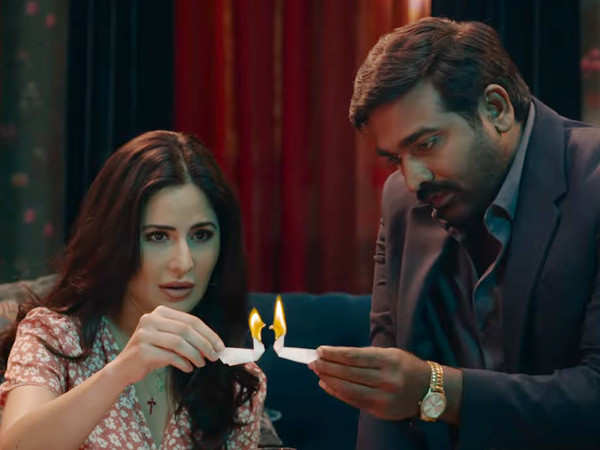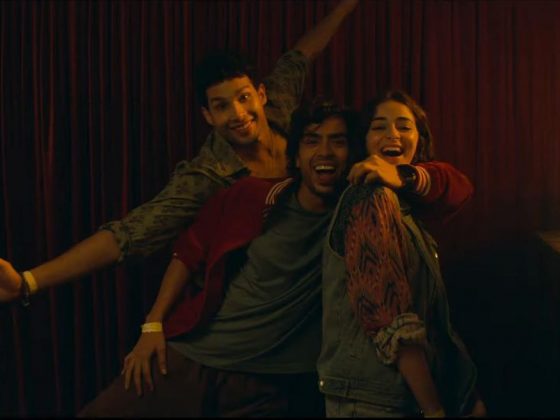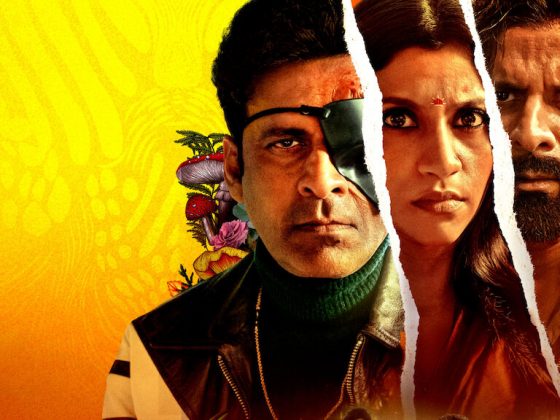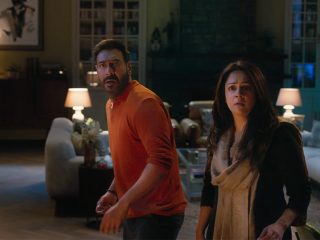It is perhaps not enough to just be a connoisseur of movies, television, and any sort of older pulp fiction and utilise those references in a film without ensuring that your milieu remains intact.
Take Le-Monte Charge (1962) (transl.: Paris Pick Up), for instance. One night at Christmas, a young man meets a beautiful Italian woman. They strike up a conversation, go back to the woman’s room, and have a couple of drinks. The man hangs a souvenir shaped like a small bird on a cage in the Christmas tree, and they go out for a stroll. When they return, the body of the woman’s dead husband is found slumped in the room, and the souvenir is missing from the Christmas tree.
But if you are Sriram Raghavan, you will take that kernel of the story and place it in a milieu of your own where the glamour of the nightlife of the European locale could be reasonably transferred. So the ‘time where Mumbai had been called Bombay’ is the timeline, Christmas night, as the name suggests, and the locale is Bombay. It manages to both be at a specific point in time and yet be sort of unmoored from that reality as a whole. With stories like these, however, Raghavan, who is no stranger to shifting genres and themes amidst his “noir umbrella,” would also have to ensure that the love blossoming between these two characters could be reasonably expanded and called back upon.
Thus enters Vijay Sethupathi’s Albert, an architect from Dubai with a dark past, having returned to Bombay after seven years. Missing the city and his mother, who had just passed away, he goes out for a night stroll, where he meets Maria (Katrina Kaif) and her daughter Annie (Pari Sharma). The two strike up a conversation, and the night goes like an easy-going gale rather than a whirlwind form of romance. It is made abundantly clear that there is a legitimate chemistry between Maria and Albert through Raghavan’s use of a handheld camera focusing on both Sethupathi and Kaif’s visages as they converse and ruminate about their chequered pasts. But as it stands, the night is long, if not merry, because upon returning to Maria’s house, they stumble upon the dead body of Jerome (Luke Kenny), Maria’s husband, the result of an apparent suicide.
That moment of the plot unpeeling itself and revealing itself to be a thriller comes just a few minutes before the interval and before the true revelation of Albert’s past. Raghavan is thus in no hurry to push you to plot beats upon plot beats. Like a Christmas carol playing while you are beside a fireplace, he wants to bring in that sense of comfort, until suddenly those noir elements kick in. It is not unwelcome, but the feeling of that tonal shift being a curveball is appreciated.
It ensured that Raghavan had sucked me into the relationship drama between Albert and Maria. Because now, as the story progresses, with references to “The Merry Widow” (1934) (only by name), the story structure of Yash Chopra’s Ittefaq hanging over Merry Christmas like the primary spectre of referential storytelling, even Shakti Samanta’s Kati Patang (referenced before the opening credits of the film in an ode of thanks to the director), or the whimsical score of Daniel B. George underscoring the twists and turns, you are never over the relationship drama of these two characters (it should be noted though that Peter Grieg’s orchestral score “In the Hall of the Mountain King” plays an instrumental role in the film, almost referencing the narrative shift to come). The narrative of the film Noir takes you for the ride, but inwardly, you want these characters’ love stories to resume. It helps that Katrina Kaif is terrific at essaying the role of the mysterious and emotionally vulnerable Maria.
If the first half had been a sort of foreshadowing of the narrative fully kicking in at the beginning of the second half, the primary twist of the film is a buildup to a slowly agonising climax. There is also a flashback section inserted to explain Albert’s backstory, but just about enough so that the twist could have some foundation to build on. It is not convoluted, but Merry Christmas isn’t smooth sailing either. To be whimsical and somewhat easy-going, Raghavan sacrifices the momentum necessary for a thriller or noir to coast off and ride to the finish line. There is a sense that as the movie trudges towards the climax, a shroud of messy storytelling threatens to hang over it like the clothes haphazardly locked in a cupboard. The cupboard looks normal from the outside, but its inside being messy doesn’t change as a result of its outside visage.
The coherence of the plot might thus start to feel off, which is why the denouement of the movie comes off as rushed. A perspective change is essential, though, because amidst the grey colour palette of the climax standing in sharp contrast to the red-and-blue colour palette and shades of neon (the sharp cinematography by Madhu Neelakandan is a standout), Merry Christmas at the end is a love story. It is the love story of two broken individuals haunted and driven by their past, and that kindred spirit brings them together. The ending makes sense even as conventional filmmaking prohibits the use of voiceover, a trademark of noir. But perhaps the voiceover could have been utilised only to underscore what is driving Albert to solve this mystery beyond morbid curiosity. The flashback section, too, feels oddly underdeveloped. It could be categorised as intentional, but the inference of that thread doesn’t compute with Albert’s present-day actions.
The investigative thread of the final 40 minutes, led by Raghavan regulars Vinay Pathak and Pratima Kazmi, and even a delightful cameo by Ashwini Kalsekar, ensures that the whimsy of this long, jolly, and mysterious night never truly ends. It feels like a light-footed, neon-drenched dream that ultimately becomes a gray-walled, square-shaped, police interrogation-filled reality resembling a nightmare, but the ambiguity of those characters ensures that you are always wary of your next step. Until the end, when Albert smiles and the screen fades out in a circle. A throwback to film noir and romance of the 30s to 40s, it is meandering and frustrating, but Raghavan’s flourishes ensure there is enough to enjoy if you open yourself up to what Merry Christmas wants to be: a Billy Wilder romance.











